#d: the fair
Text
what do you mean jennifer saunder's shrek 2 cover of Holding Out for a Hero didn't play over the entirety of dressrosa arc
#happy new year. it's been about a decade since dressrosa arc first aired#i thought i was well and truly done with that last edit but this struck me like a bolt of lightning#one last go at it to wrap up the year#also. to be fair to doflamingo: how the fuck do you predict or prepare for this shit#(small aside: dressrosa arc is so badly paced you would not believe how many eps i had to download to pull four minutes together)#one piece#op#CJ's op watch-through#CJ's edits#dressrosa#trafalgar law#donquixote doflamingo#amv#monkey d. luffy#monkey d luffy#lawlu#roronoa zoro#zoro#donquixote rosinante#lulaw
10K notes
·
View notes
Text
Good riddance to the Open Gaming License
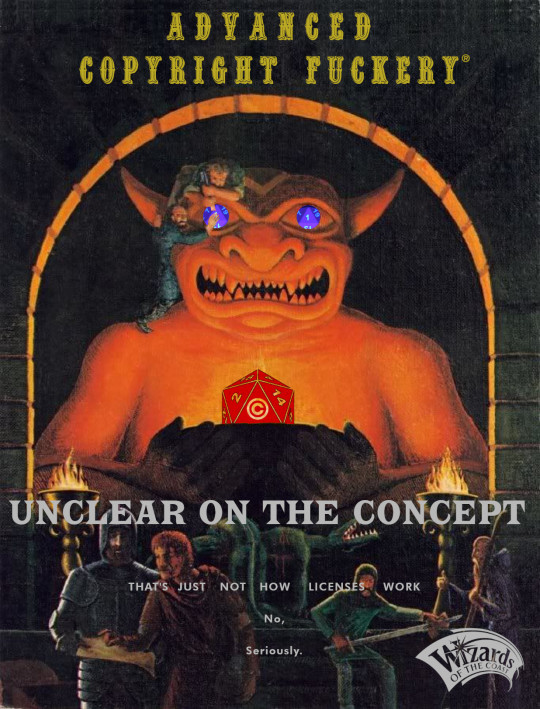
Last week, Gizmodo’s Linda Codega caught a fantastic scoop — a leaked report of Hasbro’s plan to revoke the decades-old Open Gaming License, which subsidiary Wizards Of the Coast promulgated as an allegedly open sandbox for people seeking to extend, remix or improve Dungeons and Dragons:
https://gizmodo.com/dnd-wizards-of-the-coast-ogl-1-1-open-gaming-license-1849950634
The report set off a shitstorm among D&D fans and the broader TTRPG community — not just because it was evidence of yet more enshittification of D&D by a faceless corporate monopolist, but because Hasbro was seemingly poised to take back the commons that RPG players and designers had built over decades, having taken WOTC and the OGL at their word.
Gamers were right to be worried. Giant companies love to rugpull their fans, tempting them into a commons with lofty promises of a system that we will all have a stake in, using the fans for unpaid creative labor, then enclosing the fans’ work and selling it back to them. It’s a tale as old as CDDB and Disgracenote:
https://en.wikipedia.org/wiki/CDDB#History
(Disclosure: I am a long-serving volunteer board-member for MetaBrainz, which maintains MusicBrainz, a free, open, community-managed and transparent alternative to Gracenote, explicitly designed to resist the kind of commons-stealing enclosure that led to the CDDB debacle.)
https://musicbrainz.org/
Free/open licenses were invented specifically to prevent this kind of fuckery. First there was the GPL and its successor software licenses, then Creative Commons and its own successors. One important factor in these licenses: they contain the word “irrevocable.” That means that if you build on licensed content, you don’t have to worry about having the license yanked out from under you later. It’s rugproof.
Now, the OGL does not contain the word “irrevocable.” Rather, the OGL is “perpetual.” To a layperson, these two terms may seem interchangeable, but this is one of those fine lawerly distinctions that trip up normies all the time. In lawyerspeak, a “perpetual” license is one whose revocation doesn’t come automatically after a certain time (unlike, say, a one-year car-lease, which automatically terminates at the end of the year). Unless a license is “irrevocable,” the licensor can terminate it whenever they want to.
This is exactly the kind of thing that trips up people who roll their own licenses, and people who trust those licenses. The OGL predates the Creative Commons licenses, but it neatly illustrates the problem with letting corporate lawyers — rather than public-interest nonprofits — unleash “open” licenses on an unsuspecting, legally unsophisticated audience.
The perpetual/irrevocable switcheroo is the least of the problems with the OGL. As Rob Bodine— an actual lawyer, as well as a dice lawyer — wrote back in 2019, the OGL is a grossly defective instrument that is significantly worse than useless.
https://gsllcblog.com/2019/08/26/part3ogl/
The issue lies with what the OGL actually licenses. Decades of copyright maximalism has convinced millions of people that anything you can imagine is “intellectual property,” and that this is indistinguishable from real property, which means that no one can use it without your permission.
The copyrightpilling of the world sets people up for all kinds of scams, because copyright just doesn’t work like that. This wholly erroneous view of copyright grooms normies to be suckers for every sharp grifter who comes along promising that everything imaginable is property-in-waiting (remember SpiceDAO?):
https://onezero.medium.com/crypto-copyright-bdf24f48bf99
Copyright is a lot more complex than “anything you can imagine is your property and that means no one else can use it.” For starters, copyright draws a fundamental distinction between ideas and expression. Copyright does not apply to ideas — the idea, say, of elves and dwarves and such running around a dungeon, killing monsters. That is emphatically not copyrightable.
Copyright also doesn’t cover abstract systems or methods — like, say, a game whose dice-tables follow well-established mathematical formulae to create a “balanced” system for combat and adventuring. Anyone can make one of these, including by copying, improving or modifying an existing one that someone else made. That’s what “uncopyrightable” means.
Finally, there are the exceptions and limitations to copyright — things that you are allowed to do with copyrighted work, without first seeking permission from the creator or copyright’s proprietor. The best-known exception is US law is fair use, a complex doctrine that is often incorrectly characterized as turning on “four factors” that determine whether a use is fair or not.
In reality, the four factors are a starting point that courts are allowed and encouraged to consider when determining the fairness of a use, but some of the most consequential fair use cases in Supreme Court history flunk one, several, or even all of the four factors (for example, the Betamax decision that legalized VCRs in 1984, which fails all four).
Beyond fair use, there are other exceptions and limitations, like the di minimis exemption that allows for incidental uses of tiny fragments of copyrighted work without permission, even if those uses are not fair use. Copyright, in other words, is “fact-intensive,” and there are many ways you can legally use a copyrighted work without a license.
Which brings me back to the OGL, and what, specifically, it licenses. The OGL is a license that only grants you permission to use the things that WOTC can’t copyright — “the game mechanic [including] the methods, procedures, processes and routines.” In other words, the OGL gives you permission to use things you don’t need permission to use.
But maybe the OGL grants you permission to use more things, beyond those things you’re allowed to use anyway? Nope. The OGL specifically exempts:
Product and product line names, logos and identifying marks including trade dress; artifacts; creatures characters; stories, storylines, plots, thematic elements, dialogue, incidents, language, artwork, symbols, designs, depictions, likenesses, formats, poses, concepts, themes and graphic, photographic and other visual or audio representations; names and descriptions of characters, spells, enchantments, personalities, teams, personas, likenesses and special abilities; places, locations, environments, creatures, equipment, magical or supernatural abilities or effects, logos, symbols, or graphic designs; and any other trademark or registered trademark…
Now, there are places where the uncopyrightable parts of D&D mingle with the copyrightable parts, and there’s a legal term for this: merger. Merger came up for gamers in 2018, when the provocateur Robert Hovden got the US Copyright Office to certify copyright in a Magic: The Gathering deck:
https://pluralistic.net/2021/08/14/angels-and-demons/#owning-culture
If you want to learn more about merger, you need to study up on Kregos and Eckes, which are beautifully explained in the “Open Intellectual Property Casebook,” a free resource created by Jennifer Jenkins and James Boyle:
https://web.law.duke.edu/cspd/openip/#q01
Jenkins and Boyle explicitly created their open casebook as an answer to another act of enclosure: a greedy textbook publisher cornered the market on IP textbook and charged every law student — and everyone curious about the law — $200 to learn about merger and other doctrines.
As EFF Senior Staff Attorney Kit Walsh writes in her must-read analysis of the OGL, this means “the only benefit that OGL offers, legally, is that you can copy verbatim some descriptions of some elements that otherwise might arguably rise to the level of copyrightability.”
https://www.eff.org/deeplinks/2023/01/beware-gifts-dragons-how-dds-open-gaming-license-may-have-become-trap-creators
But like I said, it’s not just that the OGL fails to give you rights — it actually takes away rights you already have to D&D. That’s because — as Walsh points out — fair use and the other copyright limitations and exceptions give you rights to use D&D content, but the OGL is a contract whereby you surrender those rights, promising only to use D&D stuff according to WOTC’s explicit wishes.
“For example, absent this agreement, you have a legal right to create a work using noncopyrightable elements of D&D or making fair use of copyrightable elements and to say that that work is compatible with Dungeons and Dragons. In many contexts you also have the right to use the logo to name the game (something called “nominative fair use” in trademark law). You can certainly use some of the language, concepts, themes, descriptions, and so forth. Accepting this license almost certainly means signing away rights to use these elements. Like Sauron’s rings of power, the gift of the OGL came with strings attached.”
And here’s where it starts to get interesting. Since the OGL launched in 2000, a huge proportion of game designers have agreed to its terms, tricked into signing away their rights. If Hasbro does go through with canceling the OGL, it will release those game designers from the shitty, deceptive OGL.
According to the leaks, the new OGL is even worse than the original versions — but you don’t have to take those terms! Notwithstanding the fact that the OGL says that “using…Open Game Content” means that you accede to the license terms, that is just not how contracts work.
Walsh: “Contracts require an offer, acceptance, and some kind of value in exchange, called ‘consideration.’ If you sell a game, you are inviting the reader to play it, full stop. Any additional obligations require more than a rote assertion.”
“For someone who wants to make a game that is similar mechanically to Dungeons and Dragons, and even announce that the game is compatible with Dungeons and Dragons, it has always been more advantageous as a matter of law to ignore the OGL.”
Walsh finishes her analysis by pointing to some good licenses, like the GPL and Creative Commons, “written to serve the interests of creative communities, rather than a corporation.” Many open communities — like the programmers who created GNU/Linux, or the music fans who created Musicbrainz, were formed after outrageous acts of enclosure by greedy corporations.
If you’re a game designer who was pissed off because the OGL was getting ganked — and if you’re even more pissed off now that you’ve discovered that the OGL was a piece of shit all along — there’s a lesson there. The OGL tricked a generation of designers into thinking they were building on a commons. They weren’t — but they could.
This is a great moment to start — or contribute to — real open gaming content, licensed under standard, universal licenses like Creative Commons. Rolling your own license has always been a bad idea, comparable to rolling your own encryption in the annals of ways-to-fuck-up-your-own-life-and-the-lives-of-many-others. There is an opportunity here — Hasbro unintentionally proved that gamers want to collaborate on shared gaming systems.
That’s the true lesson here: if you want a commons, you’re not alone. You’ve got company, like Kit Walsh herself, who happens to be a brilliant game-designer who won a Nebula Award for her game “Thirsty Sword Lesbians”:
https://evilhat.com/product/thirsty-sword-lesbians/
[Image ID: A remixed version of David Trampier's 'Eye of Moloch,' the cover of the first edition of the AD&D Player's Handbook. It has been altered so the title reads 'Advanced Copyright Fuckery. Unclear on the Concept. That's Just Not How Licenses Work. No, Seriously.' The eyes of the idol have been replaced by D20s displaying a critical fail '1.' Its chest bears another D20 whose showing face is a copyright symbol.]
#pluralistic#copyfraud#wizards of the coast#wotc#dungeons and dragons#d&d#ogl#open gaming license#eff#fair use#kit walsh#consideration#licenses
8K notes
·
View notes
Text
Miles is what I wanted in a Latino hero. Not a hero who happens to be Latino like Moon Knight, or like Namor who is from Latin American but is indigenous and not actually Latino. But an actual Latino hero. One who speaks Spanglish and gets annoyed when call him an immigrant because PR is part of the US and gets his cake from a Mexican bakery and loves his parents even if he feels like he can’t talk to them and calls Miguel tío
I love him so much
#there was fair criticism of the first movie for not waiting to call miles the first Latino hero#bc they did v little to show his heritage#but now!! there’s no denying it :D#miles molares#gwen stacy#Peter Parker#atsv spoilers#spider man across the spider verse#across the spiderverse#itsv#spiderman atsv#usaigi speaks
2K notes
·
View notes
Text

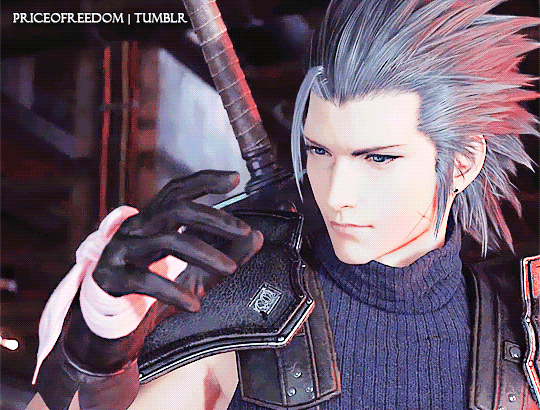
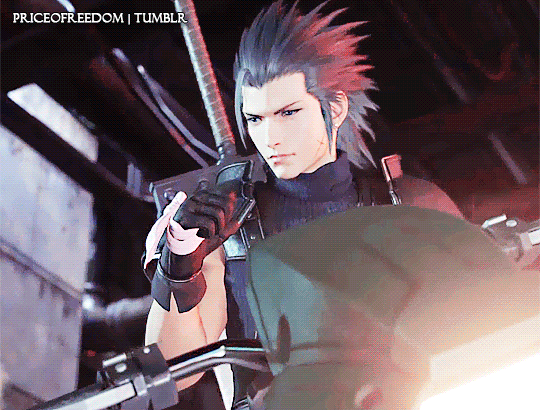
Zack carrying Aerith's ribbon 🎀
FF7 Rebirth
10 / ?
#final fantasy vii#ffgraphics#zack fair#zerith#gamingedit#ff7 rebirth#ff7 remake#zack#ff7#final fantasy vii rebirth#ff7 rebirth spoilers#rebirth spoilers#creaciones#trying to cope with the fact that i got little to no zerith :-D
604 notes
·
View notes
Text
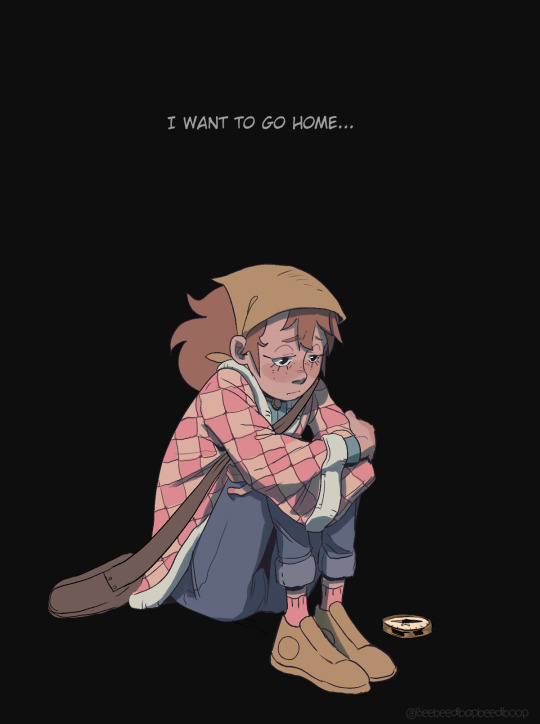
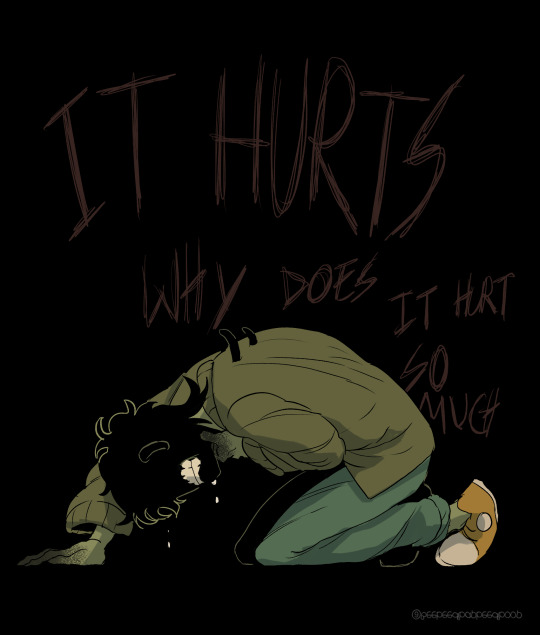
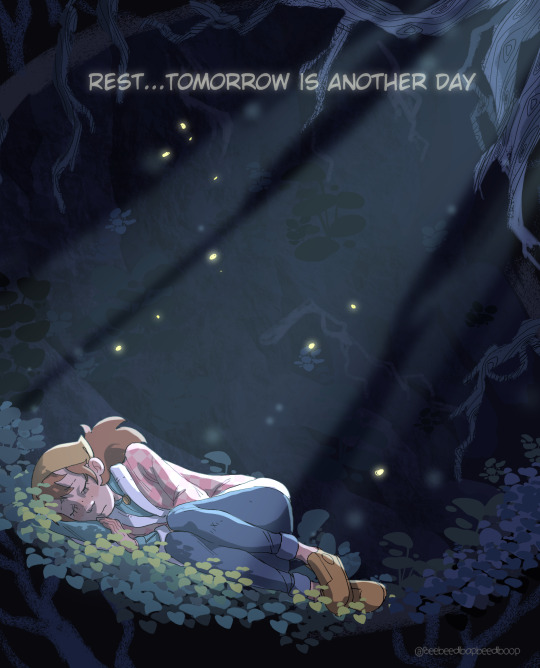
Haven't I given enough?
Given enough
#artists on tumblr#art#illustration#the postwoman#the bad bad shadow guy#character design#angst#everyone: oh bee is back she might post more of the postwoman and bad bad shadow guy :D#me: drop this#best I can do chief#i told my friend i wanted to draw her sad because i always draw her happy and she said when was the last time you drew her happy#and im like....thats fair#might be for another day lmao#tbh it's also a big vent art#song in caption is gilded lily by cults#using my ocs to cope
5K notes
·
View notes
Text
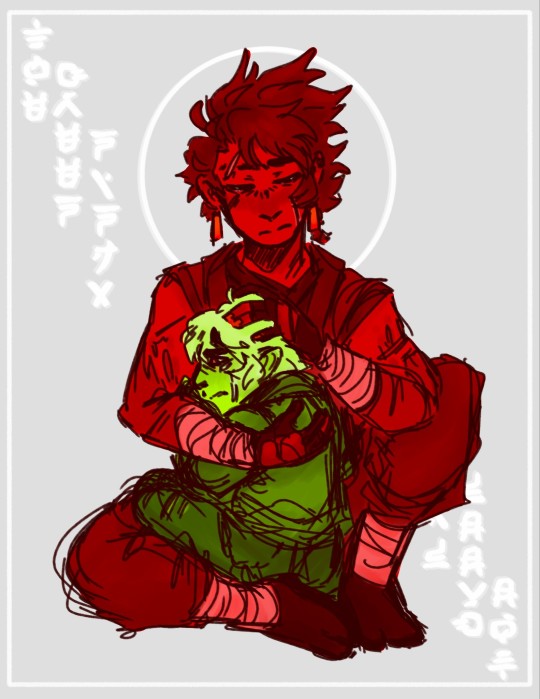
You are eight years old
You have to kill your dad
#ninjago#watched child's play again#fucking DIED#YOU EVER THINK ABOUT HOW LLOYD IS LIKE EIGHT??? TEN??? HE'S A C H I L D#fair isn't a word where i come from YOU'RE A KID#GOD YOU'RE A KID#im in physical pain#kai smith#kai jiang#kai ninjago#lloyd garmadon#lloyd ninjago#person who tagged something#lloyd jiang#you understand me#kai and lloyd do you mean#you never wanted to be the green ninja and your brother wants so badly to take it from you so you get the chance to be a child#the way he never did because he had to raise his sister as well as himself#and in you he sees the wrongs done to him but a thousand times worse#because you're not just losing your childhood#you have to kill your dad#GOD IM SO NORMAL#kai wanted to be the green ninja. he still wants to be the green ninja. but not for himself. so that Lloyd doesn't have to carry the weight#of a destiny he never wanted#lloyd wants to give kai the green ninja so that he doesn't have to be the savior or the chosen one or the guy who's going to kill his dad#and he can't#theyre so sad#my art#essays in the tags again
2K notes
·
View notes
Text


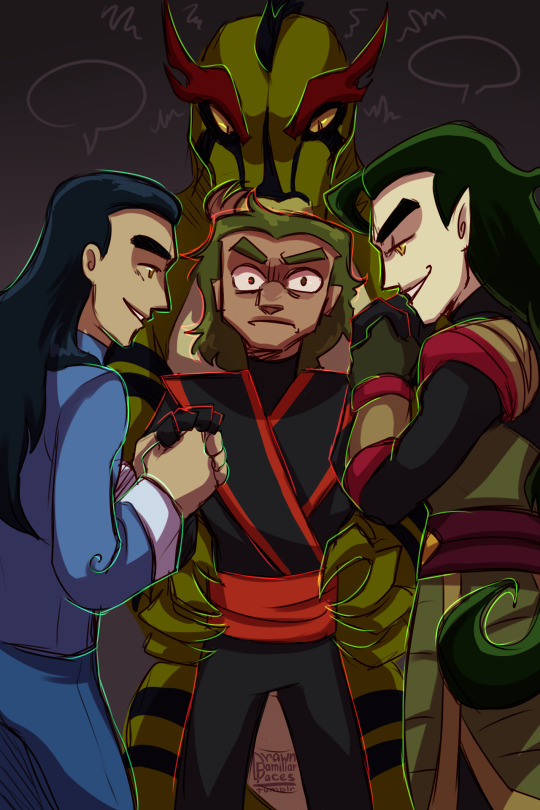
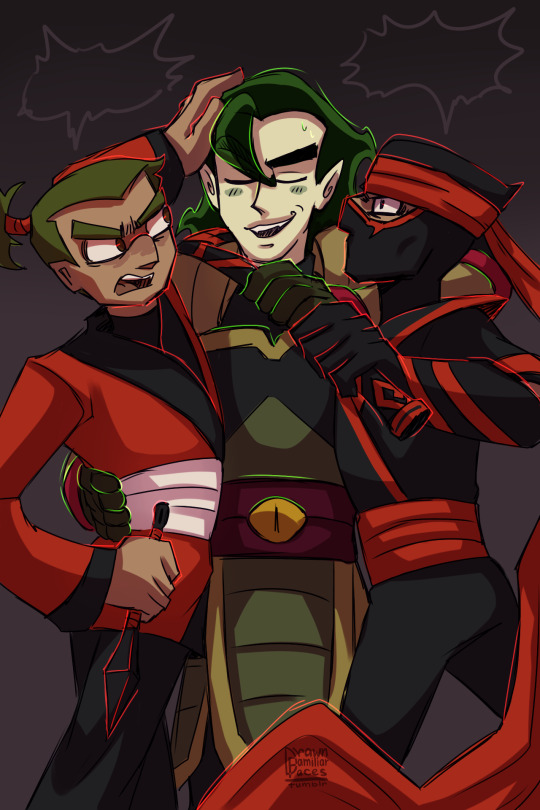
i....am so normal about them
#ninja showdown#my immortal soul#first ninja x chase young#rc9gn first ninja#first ninja#chase young#xiaolin showdown#rc9gn#randy cunningham 9th grade ninja#its always fun in rare-pair hell you create for yourself because all the content you want is in ur head#so if you want it in the world you gotta d r a w s o m e s h i t#so its just me blasting heroxvillain playlists as i draw and imagine chase&first dramatic comics haha#i have more stuff so im just gonna blast everyone with concentrated doze of my immortal soul! fair warning!#so if you are in my crazy blast zone. sorry! dont forget if it annoys you feel free to block the tags
312 notes
·
View notes
Text
.. dirk totally didnt get his first period until after leaving earth like bc of both physical and mental health. i can vividly see how it plays out in the alpha kids sesh where he flips the fuck out about it and doesnt talk to anyone for a week in a panic.
#odd thing to think about but i think its fair#d talks#hal’s like dont be a whiny bitch until 3 days pass and dirk’s white knuckling the toilet about to barf half out of nerves and half because#of the Symptoms.#*is still after 3 says#**DAYS#mr i have to take care of everything myself
224 notes
·
View notes
Text
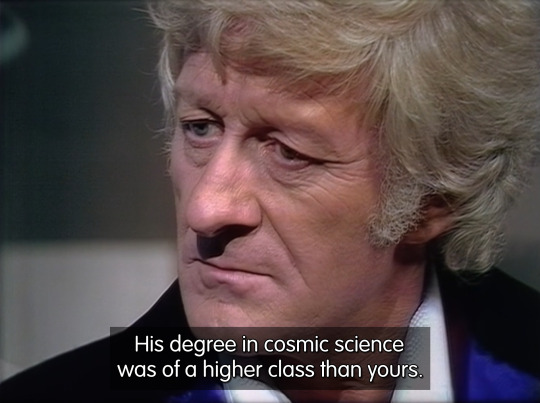

#EVEN more than my last d/m poll there is a correct answer here.#but i have included these 2 screenshots in the interest of FAIRNESS and IMPARTIALITY.#thoschei#doctor x master#dw
275 notes
·
View notes
Photo
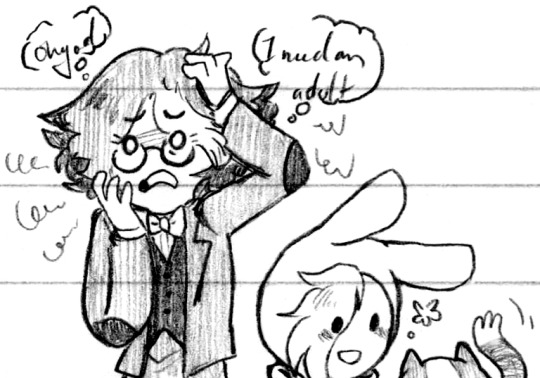
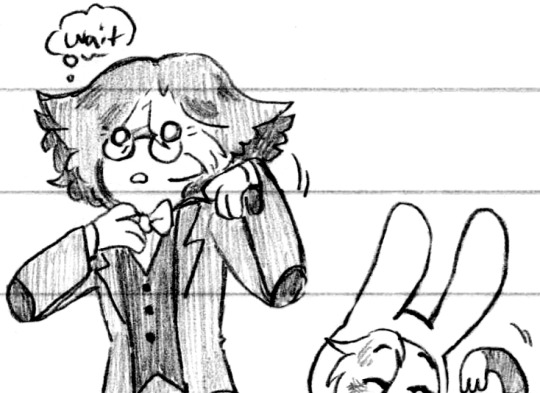

Congrats on your promotion (Patreon)
#Doodles#Adventure Time#Fionna and Cake#Simon Petrikov#Fionna Campbell#Cake#Not only the adult in the situation but also her dad! Wow! Lol#When is this set? Don't worry about it lol#I mean when wouldn't it apply honestly haha#Constantly out of his/their depth: The Series#Meanwhile Fionna is just having a fun time :) I just want her and Cake to be happy <3#Drawing Fionna smiling is so nice she's so cute ♪#And admittedly drawing Simon stressed is also very fun lol poor thing#He just has so much fluff to pull on! Stress-scrunches his hands into his hair hehe#To be fair he's doing his best - he's rather competent for being a mild-mannered human!#He does about as well as could be expected and even above and beyond in places#Him calling out the Vampire King out of sheer dadly indignation? Beautiful#And he's still growing and learning :D Good for him#For now tho he gets to come to terms with that fact haha >:3c#How fun it is to be the one in control of your own destiny! How empowering and not at all stressful to be at the whims of the universe!#Ehh he's got a cosmic entity looking out for him he'll be fine#As long as he plays to her tune ♪
176 notes
·
View notes
Text
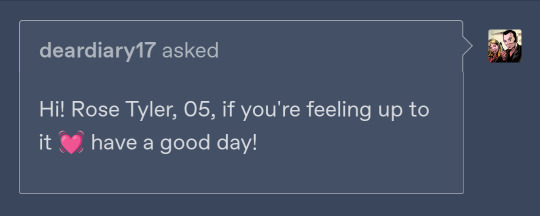



That day on the beach.
#doctor who#rose tyler#tentoo#tenth doctor#dw fanart#picandchips#color palette challenge#I decided to be cheeky and combine those 3 requests into one as they all went for the same palette ;)#this took ne ridiculously long (but to be fair I'm struggling with back pain /D)#and I have apparently forgotten how shading works lol#but whoo some new art! \o/✨
434 notes
·
View notes
Text
I don't want medieval mechs to transform into cars and airplanes and helicopters because that would kinda ruin the whole medieval fantasy vibe.
But Senator Shockwave's altmode is a space shuttle...
And shuttles also aren't exactly very medieval...
But what if I made him fly without altmode...
...
What if I gave him wings.....
What if I gave him gorgeous shiny metal wings...
#you know haha#Blurr can still be so freaking fast even without his altmode#it would be bair if our beloved senator could still fly#*fair#i don't know#I need to think about that#his armor does have these big pointy pieces on the back#right behind his shoulders#they...c o u l d ...be turning into pair of wings maybe#hmm#I'm not sure if that would fit him#but he would be able to....potentially...theoreticaly...fly and carry Blurr in his arms#okay it's midnight I'm probably making no sense haha
130 notes
·
View notes
Text
zoro x luffy is evil bc I didn’t want to ship them and then zoro had to go and pull the “did I disappoint you? I will be the worlds greatest swordsman for you my pirate king” / devotion / trust / risking his life on the daily / being his literal almost canonical soulmate (platonic or romantic) thing and. well here we are
#zolu#one piece#roronoa zoro#monkey d luffy#and luffy did his fair share. now that I know the characters a LITTLE better I see that#but I really noticed zoro’s mess first
203 notes
·
View notes
Text



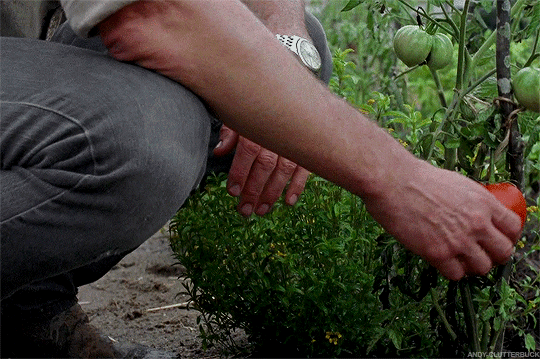
9x03 | Warning Signs
#here comes Papa Bear 🐻💖#Rick Grimes#*#rg#S9#hello my gorgeous old man#me as a tomato#H A N D S#still want to rub his fuzzy head like its a crystal ball and im some cheap ass fortune teller at a county fair#HIS PROFILE#excuse me but the nose™#SANTA FACE#also his arm hair but i'm not gonna be that weird right now#why is fuzzy daddy blurry that's a crime#there's that urge to rub up against something like a cat again
201 notes
·
View notes
Text
A country fair wizard that uses the stick from corn dogs as impromptu magic wands. They burn up after one use, but they get the job done and it gives him an excuse to get another corn dog or other deep fried foods served on a stick.
#wizard#wizardposting#wizard shit#wizardblogging#wizardblr#d&d#dnd#make up a guy#character idea#corn dog#county fair#state fair#food
369 notes
·
View notes
Text
I've cracked the code
Opla zolu:
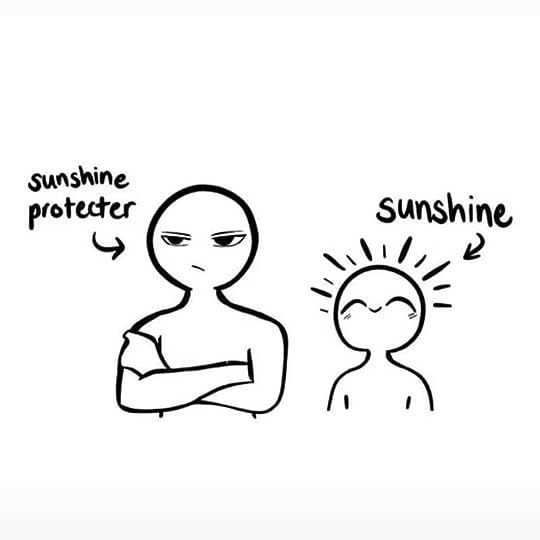
Animanga zolu:
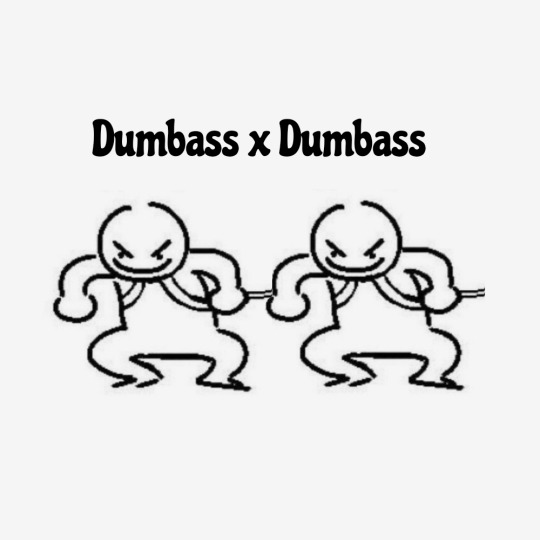
#opla#one piece live action#one piece#monkey d. luffy#roronoa zoro#zolu#my observation as of ep 30 of the anime#to be fair opla zoro has his fair share of idiocy#anime zoro tho?? man's just operating on a single braincell#many different flavors of zolu#and i love all of them
209 notes
·
View notes